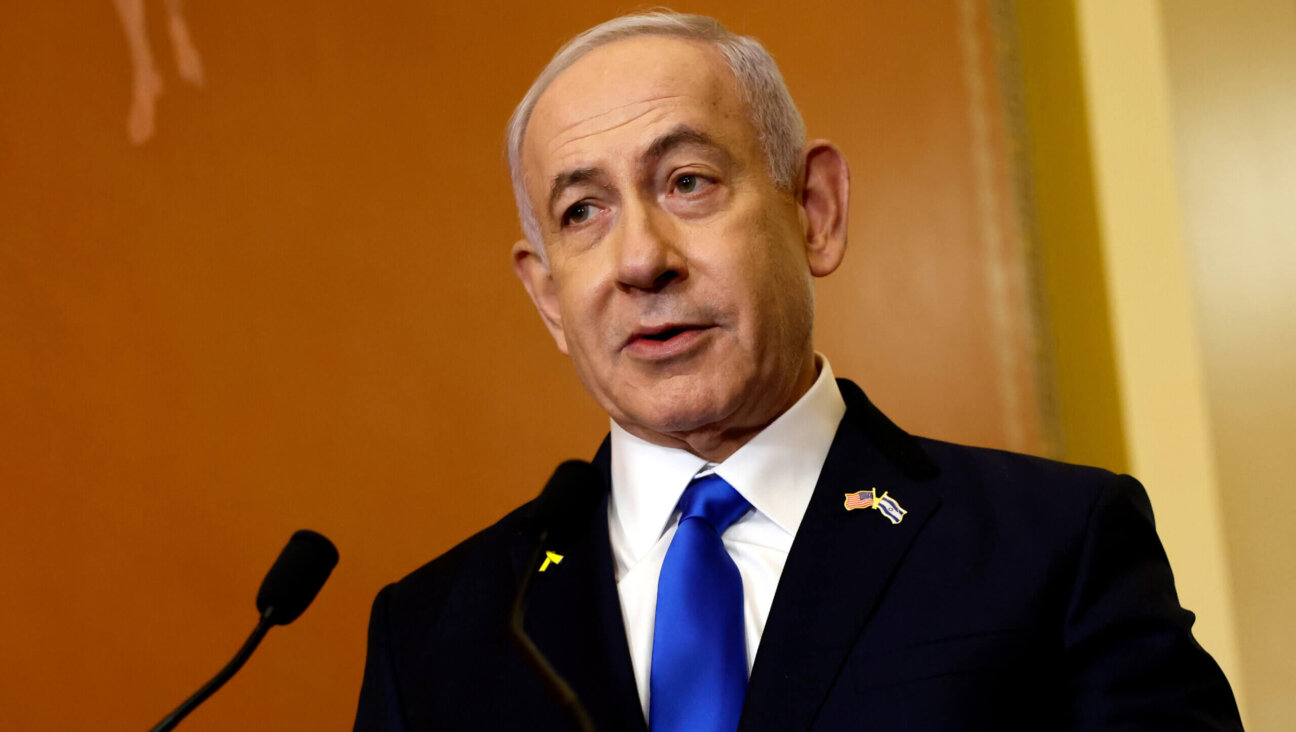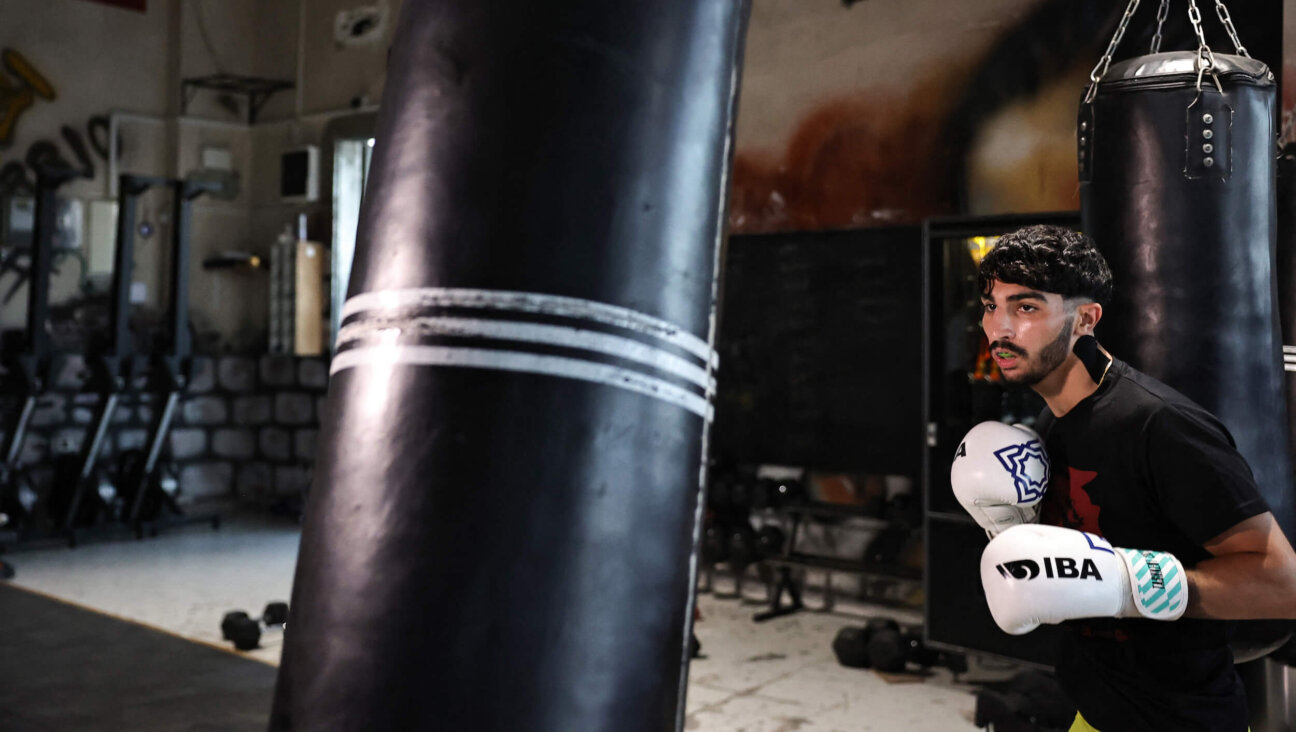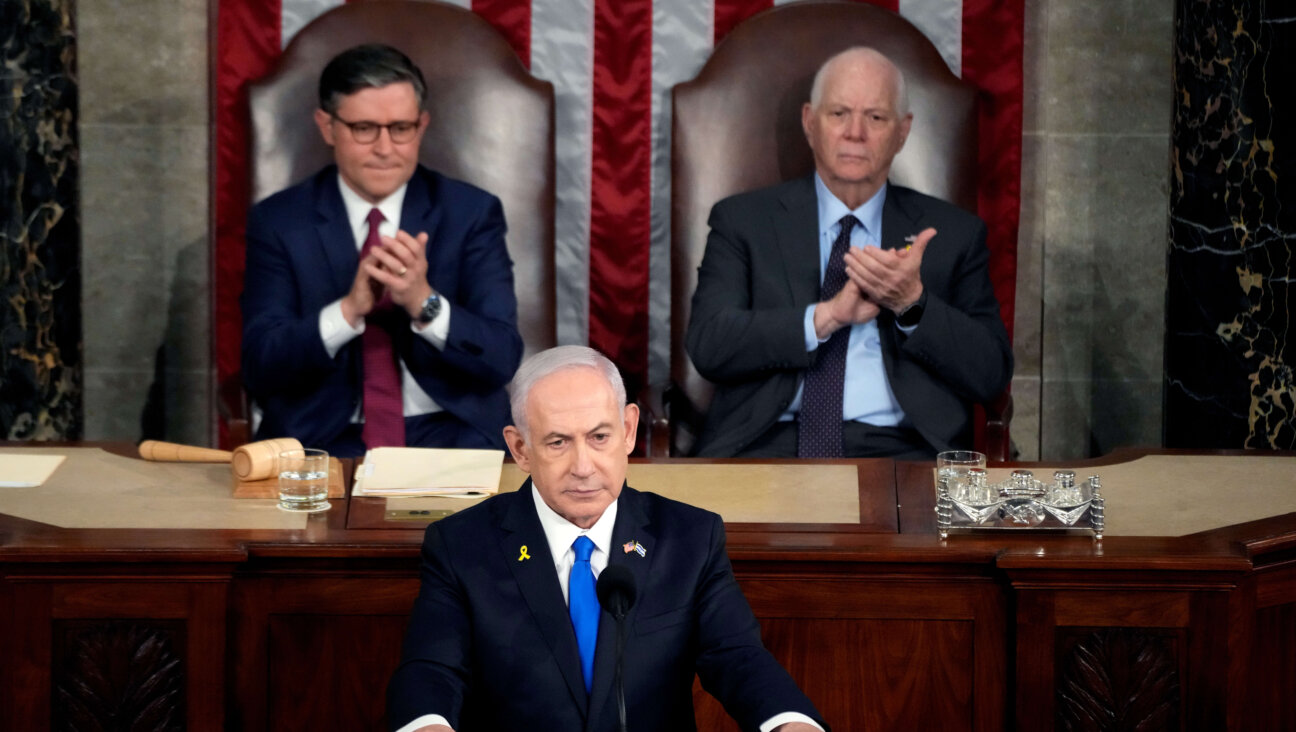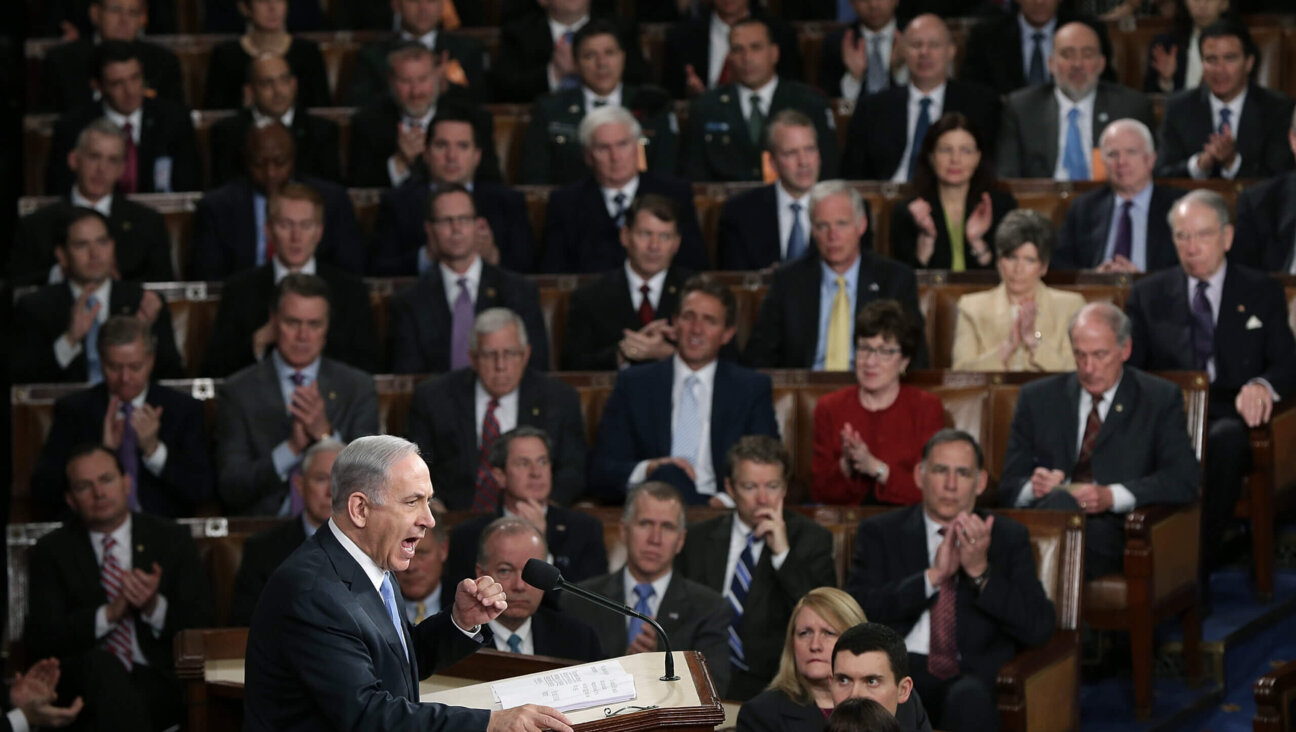The Fundamentals of an Iran in Exile
The diplomatic officer asked, for the third time, how I’d been persecuted as a Jew in Iran, as he leafed through my application for political asylum. But I said nothing.
His stern tone, his fierce gaze demanded certainty, clarity and conviction — all the things that I could not find within. Sitting opposite him in his office at the American embassy in Vienna on that April day in 1985, I remained silent until my mother finally rushed to offer what I would not.
It’s 19 years later, and I’m only beginning to form the answers the officer once wanted. The five years following the 1979 revolution and the way in which they had affected the Jews of Iran were difficult to sum up, though all the alarming signs existed: A few leaders had been executed. Several schools, including my own, had been taken over by diehard Islamic ideologues who were proselytizing the students. School bathrooms had been segregated by religion. And derogatory terms and symbols that I had only known through my father’s childhood stories, distant and unreal as fairy tales, suddenly had thrust themselves upon my reality.
There had been no overt or official decrees, but Jews could not receive passports or exit visas. And for a brief period, business owners were ordered to display signs in their shop windows that read: “This establishment is being operated by a member of a religious minority.” The war with Iraq had begun, and though the demand for medical professionals had soared, hospital administrators hesitated to hire Jewish professionals, as the wounded members of “Hezbollah” — the “Army of God,” as was first coined by Ayatollah Khomeini — didn’t wish to be touched by non-Muslims. Life had, without a doubt, worsened for Jews in Iran.
But life had worsened for everyone I knew. In some ways, life had worsened for our Muslim friends, neighbors and colleagues far more than it had for us. Whereas Jews had lost the opportunities to thrive academically and professionally, secular Muslims who didn’t share in the new regime’s outlook were losing their lives.
The mullahs considered Jews “people of the book,” a legitimate religious minority, and allowed us luxuries that they denied Muslims. When music was banned, the Bob Dylans and Joan Baezes of Iran were allowed to perform only at foreign embassies and Jewish organizations, where adoring fans who once dreamed of a handshake sat to meals with their beloved icons. And as for the crime of possessing books and literature with subversive themes, a Jewish youth had a far better chance of escaping arrest — “Jews only got money on their mind, not politics,” was the thinking of the authorities — than did a fellow Muslim youth.
What drove Jews out of Iran were the ruling mullahs, not an antisemitic nation. Our neighbors prayed for our safe passage, and marked our departure by throwing water behind us for good luck. Our friends shed tears as they saw us to the airport to bid us farewell. What drove us out of Iran was a fundamentalist regime that did not tolerate those who did not share its worldview. They eliminated their own secular Muslim counterparts with no less vehemence.
The regime’s campaign was not a campaign of “ethnic cleansing,” but one against secularism and modernism, against everything they identified as manifestations of their most ubiquitous enemy: the West. It was all the same war, and waging it against the Jews was easier under the old, familiar guise of antisemitism.
There are signs in many parts of the world that attest to the rising tide of antisemitism. But Iran is another story.
Though the Jewish community in Iran has shrunk significantly since 1979, 2,000 years of history of coexistence between Jews and their Persian neighbors ought to be seen as the rule, and the past 25 years as the exception. The Iran of the 1970s, with its booming economy and modernist strides, had dismantled ghettos. Segregation in schools or trades had nearly vanished. Then came the fiery ayatollahs, in whose flames everyone burned. Fortunately for Jews, finding a refuge outside of Iran offered the exit everyone was searching to find.
Whether Jews and Muslims can live together in peace is the question of our time. But looking at history since 1948 offers too small a window for an informed view. Nor can the search for hope begin in Jerusalem. Tehran is still home to the largest community of Jews in the Middle East outside of Israel.
To address the issue of Iran’s shrinking Jewish community is to address the issue before all Iranians: an intolerant regime that knows no civil liberty and grants no freedom to its citizens. To promote the cause of democracy in Iran is to reinvigorate a coexistence that had been, despite some grim periods and practices, peaceful for the most part.
It is this ancient and intimate experience for which Iranian Jewish expatriates yearn as they hold fast to all things reminiscent of “home.” It is this yearning that kept me from giving an answer to the foreign service officer so many years ago, the same yearning that keeps my father from driving in America. These roads, he says, don’t lead to any place where he first left his heart.
Roya Hakakian is author of the forthcoming memoir “Journey from the Land of No: A Girlhood Caught in Revolutionary Iran” (Crown Publishers).
A message from our editor-in-chief Jodi Rudoren

We're building on 127 years of independent journalism to help you develop deeper connections to what it means to be Jewish today.
With so much at stake for the Jewish people right now — war, rising antisemitism, a high-stakes U.S. presidential election — American Jews depend on the Forward's perspective, integrity and courage.
— Jodi Rudoren, Editor-in-Chief























